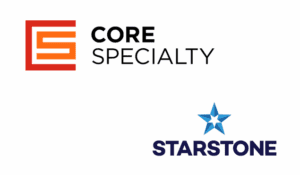How much does Obamacare cost per month?
How much does Obamacare cost per month?
On average, an Obamacare marketplace insurance plan will have a monthly premium of $328 to $482. This cost is before Premium Tax Credits have been applied, which people can receive if they are between 139-400% of the Federal Poverty Levels. Dec 1, 2021
What are the benefits of Obamacare?
Pros More Americans have health insurance. … Health insurance is more affordable for many people. … People with preexisting health conditions can no longer be denied coverage. … No time limits exist on care. … More screenings are covered. … Prescription drugs cost less.
What is the income limit for Obamacare 2021?
In 2021, for a single person, 138% of the poverty level equates to $17,774; for a family of four, that amount equals $36,570. … Previous 2021 Total Household Income for Maximum ACA Subsidy. Household Size Household Income 1 person $51,040 2 people $68,960 3 people $86,880 4 people $104,800 4 more rows • Oct 27, 2021
Is Obamacare the same as Affordable Care Act?
“Obamacare” and the “Affordable Care Act” are the SAME thing.
Which plan will have the highest monthly premium?
Platinum plans have the highest monthly premiums and lowest out-of-pocket costs. The deductibles are usually very low. Jun 14, 2021
What is a Silver plan?
A silver plan pays for more out-of-pocket medical costs than a bronze or catastrophic policy but less than a gold or platinum plan. Each company selling health insurance in a Marketplace must offer at least one silver-level plan. Silver plans pay, on average, 70% of the cost for the benefits that the plan covers. Jun 21, 2021
What is private insurance example?
Private health insurance is primarily funded through benefits plans provided by employers. Examples include: Blue Cross and Blue Shield health insurance companies. Non-Blue commercial health insurance companies.
What is a private insurance plan?
Private health insurance refers to any health insurance coverage that is offered by a private entity instead of a state or federal government. Insurance brokers and companies both fall into this category. Jan 21, 2022
What is the difference between private insurance?
Public health insurance is insurance that is subsidized or paid for entirely by public (government) funds. Private health insurance is paid for in part or entirely by the individuals being covered. Several different public options are available in each state, but strict eligibility requirements exist. Jan 28, 2022
What are the advantages of private health insurance?
Benefits of private health insurance More health cover and choice. Pay less tax. Get a private health insurance rebate. Avoid paying more for cover when you’re older. Aug 18, 2021
What are the two types of private health insurance?
There are two types of private health insurance cover: hospital cover (for in-hospital treatment), and. ancillary or ‘extras’ cover (for ambulance, optometry, dental, physiotherapy and other ancillary services).
How do insurances work?
The basic concept of insurance is that one party, the insurer, will guarantee payment for an uncertain future event. Meanwhile, another party, the insured or the policyholder, pays a smaller premium to the insurer in exchange for that protection on that uncertain future occurrence.
What are the three types of insurance in the Philippines?
13 Different Types of Insurance Policies in the Philippines Life Insurance. Term Life insurance. Whole Life Insurance. Universal Life Insurance. Variable Life Insurance. Health Insurance. Educational Insurance. Vehicle and Accident Insurance. More items… • May 24, 2020
What is the difference between Obamacare and private health insurance?
The most important difference between Medicaid and Obamacare is that Obamacare health plans are offered by private health insurance companies while Medicaid is a government program (albeit often administered by private insurance companies that offer Medicaid managed care services). Dec 13, 2021
Is public or private insurance better?
Privately insured individuals are more likely to report worse access to care, higher medical costs and lower satisfaction than those on public insurance programs like Medicare, suggesting public options may provide more cost-effective care than private ones, according to a new study published in JAMA on Tuesday. Jun 1, 2021


